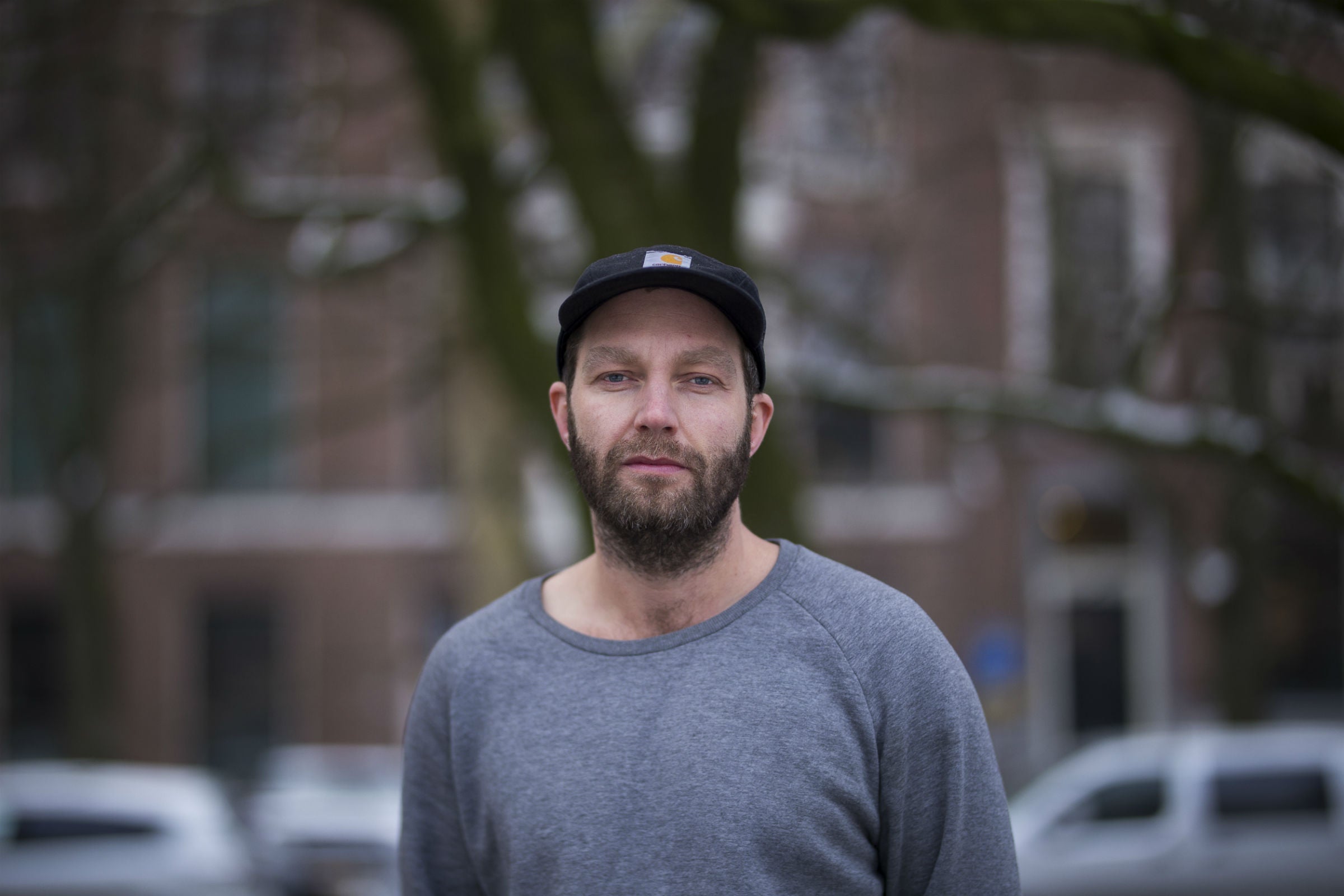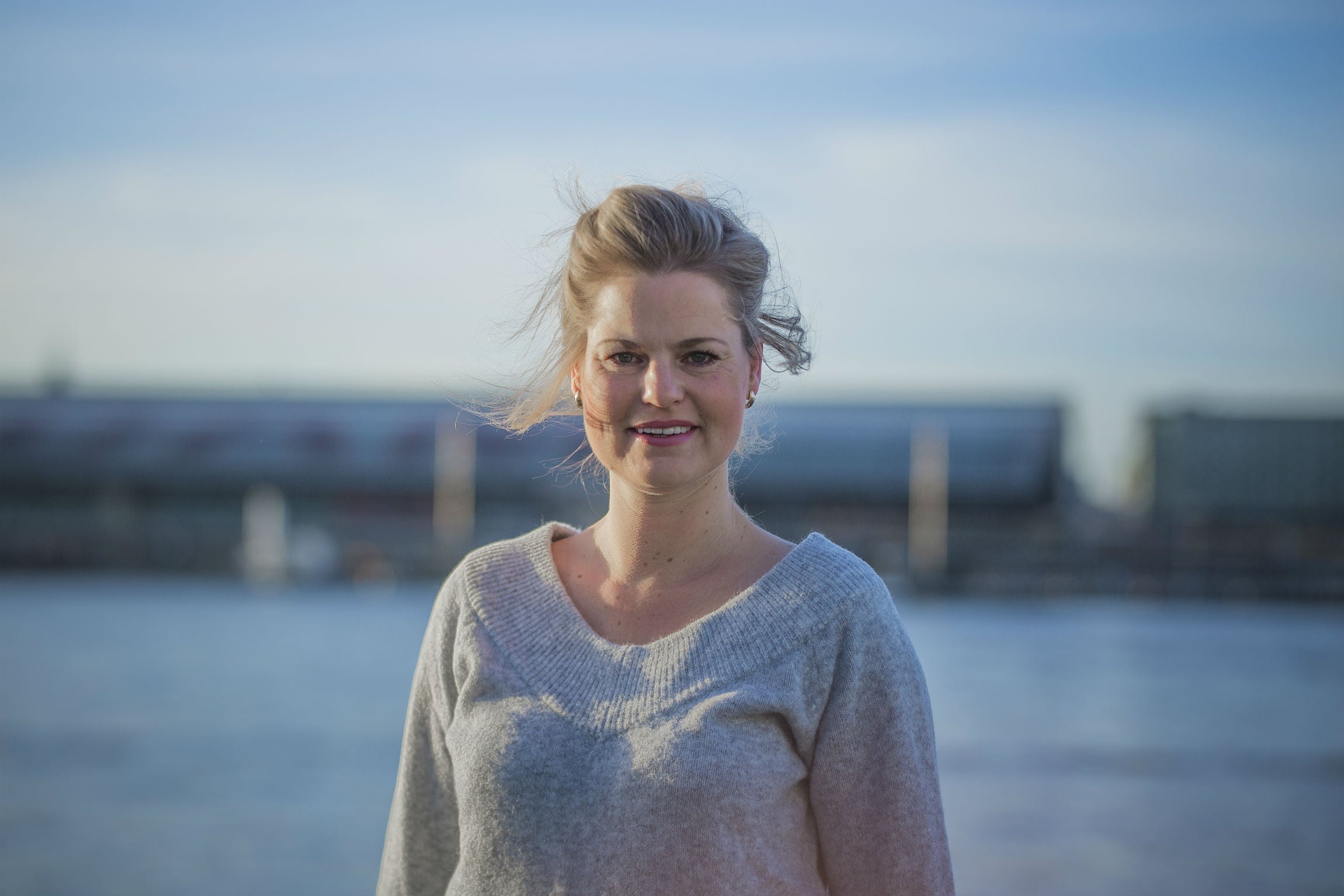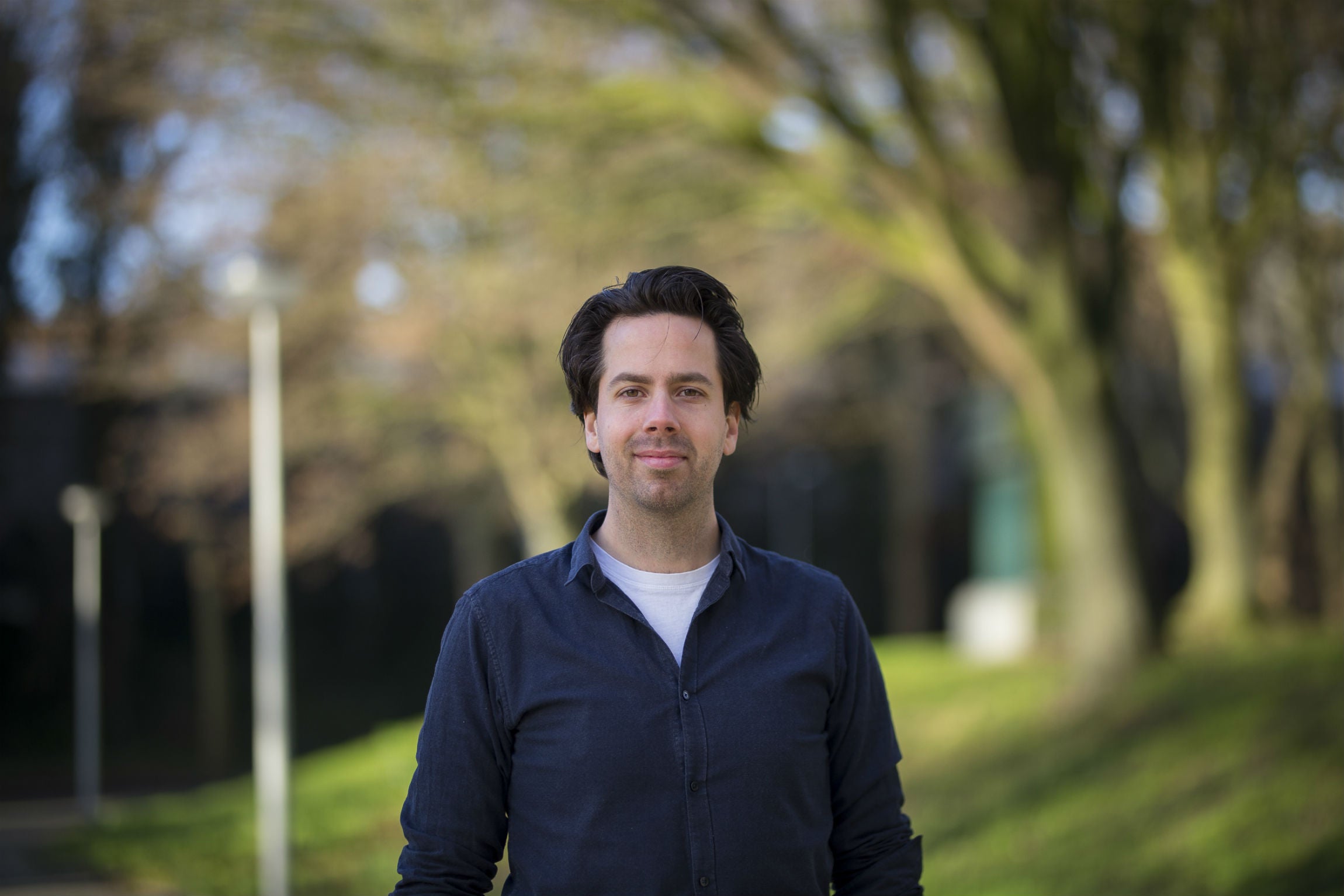There are now more than 107.000 VU alumni. Where did they end up after graduation? In this section we portray three alumni from the same degree programme. This time, we talked to alumni of the Bachelor’s degree programme in Philosophy.
Ted Tettero (33) lives in Amsterdam and graduated in 2013

How do you look back on your studies? "With great joy. Although I should also say that philosophy isn’t always fun. It makes you very aware of how the world works and why we people make certain choices. As a result, I was a bit lost at first, as I became aware of the many false assumptions we tend to make. It didn't always make me very happy. At the same time, it did end up giving me a firm foundation, which I still benefit from today.”
After graduating, you ended up at Lowlands. Tell us more. "That's right. The first four years after graduation, I was responsible for the philosophy programme at the festival. I would go looking for a range of interesting speakers who wanted to come to the festival to talk about philosophy, which can be quite challenging when the Foo Fighters are giving a competing show just minutes away. Still, it always turns out to be a great success and every year you’ll find hundreds of people in the tent, listening to a philosopher. We look for subjects that will appeal to the average festival visitor, such as lectures on how to make choices in a world where there is so much to chose or on how philosophy can help you in your daily life.”
And how can philosophy help us in our daily lives? "You sometimes hear people say that they have no choice or that something is just the way it is. I strongly believe that philosophy helps to expose the choices you have in life and gives you options on how to relate to those possibilities."
What is your dream for the future? "Making philosophy even more accessible to a wider audience. I’m the founder of the Brainwash Festival, a festival where artists, writers, poets and philosophers shine their light on common questions. In this way, I hope to introduce people to philosophy. Not to explain complicated theories, but to encourage them to think about what a good life could look like and how to relate to the world around them.
Do you think people are more open to that in 2019? “Absolutely. The younger generation in particular is looking for something to hold onto in life. That role used to be played by religion, but seeing as many young people have turned away from faith, we have started looking for other ways to help us to find answers. How do you make certain choices? And how do you know if they’re the right choices? Philosophy can be very helpful in that respect.”
Patricia Wouda (39) lives in Amsterdam and graduated in 2009

You started off at the University of the Arts. How did you end up studying philosophy? “Music used to be a great love of mine, but I found I was missing something there. I didn't want to go through life as a musician and was looking for an intellectual challenge. I wanted to study and develop myself in various different areas, and that's how I ended up studying philosophy."
Did you enjoy your studies? “It was a fantastic programme, even though I used to be very afraid that I’d never find a job. Not because I had the idea that my knowledge wasn’t valuable, but because I didn’t know what employers would need a philosopher for.”
In the end, it all worked out well. “Fortunately, it did! Ultimately, I decided to specialise in political philosophy, which made everything a lot more tangible. After working as a press officer for the CDA in the Dutch House of Representatives, I’m now a self-employed debate trainer in the Netherlands and abroad. I train people to develop their debating skills, speaking skills and persuasiveness. I work with politicians, as well as with civil servants or special trainee programmes.”
How do you look back on your studies now? “Very fondly. One of the best parts of the field is that it gets you to look at the world from a completely different perspective: more structured, more analytically and in a historical context. The study shapes you as a human being. It determines your attitude to life, but also how you look at society, which I have always thought to be very valuable.”
Do you have any plans for the future? “My work is very much about making good decisions. How do you do that? And how do you provide a sound rationale for a decision? At the moment, I’m trying to focus on the ethical side of decision making. Suppose you have to choose between two evils: how do you end up with a well-considered choice? I guide and support people and give them tools to make honest decisions, even when they’re faced by ethical dilemmas.”
Andert Loman (33) lives in Amsterdam and graduated in 2014

As a student, you combined philosophy and organisational science. Why? “I was very interested in philosophy, but I wanted to be able to apply the theory in practice. This combination was extremely suitable for that purpose."
What type of work are you doing now? “I work as a self-employed organisational philosopher, which means that I’m brought in to organise and guide conversations among teams or groups, among other things. These discussions may be about a company’s vision, or about sensitive subjects, such as Q fever. In this case, I make sure that all people involved come together, are made to think and have a conversation together without leaping to a conclusion, and challenging each other. On top of that, I also give training sessions and workshops in conversation skills.”
And what do you like best? “Working closely on conversations. We all talk to other people every day, but we rarely think about how, about what’s effective and what doesn’t work at all. What tendencies do we have during conversations? When I see in training session that a conversation is going well or that people are developing new skills, it gives me a tremendous amount of satisfaction.”
What do you believe to be the importance of philosophy in 2019? “Today’s society is very volatile, and philosophy gives us tools to think about what we’re actually doing, to reflect. As a society, a company but also as an individual. Is what I think actually true and what other perspectives are there? We don’t do this enough, even though it can help us understand ourselves, each other and the world around us.”
Do you still have dreams? "Sure, I'd like to set up my own coaching practice. When I guide conversations, my role is to facilitate the discussion, but I also love the challenge of delving deep into a certain subject. There’s much more room for that in 1-on-1 processes, and I’m currently working on getting that up and running.”






